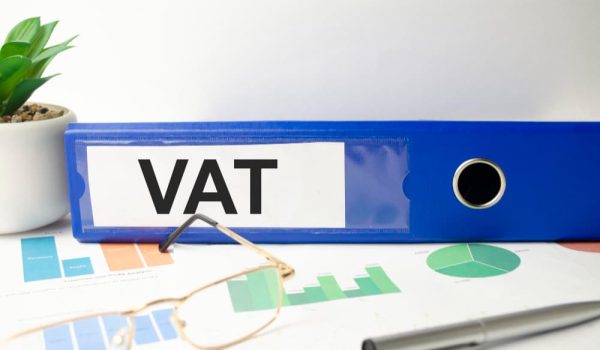All European countries are subject to VAT. A tax system that is efficient, transparent and simple, which applies to the whole of the single market in Europe.
While each country may have its own rates and ruling for VAT, some principles are the same. It’s applied to all commercial activities, it’s paid by the customer through the seller, and it’s a percentage of the price of the goods and services subject to this tax.
How does it work VAT in Bulgaria?
Accountancy Bulgaria, one of the most reliable company advisor in Bulgaria, has gathered all the information you need to know about the Bulgarian VAT system, its rates and advantages in this country. Let’s have a closer look.
Looking for Accountancy Service in Bulgaria?
Request a free consultation
Book your free 30 minutes meeting with us here to receive all the support you need
What is VAT?
VAT, or Valued Added Tax, is a broad consumer tax based on the value added to products and services. It’s widespread in the European Union and it virtually applies to almost all consumption goods and also services that are either bought or sold within the border of the EU.
This means that goods or services sold to foreign countries are not subject to VAT.
These are some important things to remark about the Value Added Tax system.
– VAT is a consumption tax that is applied to the final consumer, meaning that businesses are not charged VAT (it can be therefore deducted on yearly company tax filings).
– VAT rates apply as a percentage of the price of products and services.
– VAT is paid by the seller of goods or provider of services, while it’s the customer, the one covering its cost. This makes it an indirect tax.
– This tax is a general tax, meaning it is applied to all commercial activities.
– The value added taxes are a main part of the efficiency of a single market in Europe, assuring a transparent tax system that applies to all the countries within the EU.
The VAT rates may vary from one country to another. Today we will concentrate on Bulgaria’s VAT rates and how it works in the country.
Read also: Looking to move your company to Bulgaria? All you need to know
The Bulgarian VAT system: VAT rates for goods and services
The standard VAT rate in Bulgaria is 20%, while there are reduced rates for some commercial activities.
Certain goods and services, like hotel accommodation, benefit from a 9% VAT rate, while other goods and services are completely exempt from VAT.
Here there is a list of goods and services that have a lower VAT in Bulgaria.
– Baby food, hygiene products, and books (permanent);
– Newspapers and magazines;
– Restaurants and catering services;
– Use of sports facilities;
– Certain tourist services;
– Natural gas and central heating (temporary);
– 0% VAT for flour and bread (temporary).
As mentioned, there are also certain commercial activities exempt from VAT, for example, exporting goods outside of the EU, transporting goods beyond the limits of the European Union, and supplying lines of parts and services related to air and naval companies.
There are also certain activities that have 0% VAT, for example, financial, educational, gambling, health, and insurance activities, among others of the like.
It’s good to keep in mind that the VAT System (not only the Bulgarian one) is different from the Tax System for companies. In fact, the rate for corporation tax in Bulgaria is 10% for all companies and all costs and professional expenses can be deducted.
Read also: Is Bulgaria in the EU? YES! Here is how and why
How does the VAT system work for companies in Bulgaria?
There is a VAT recovery system in place for VAT-registered companies in Bulgaria. Balancing the input VAT and the output VAT results in a positive or negative difference that determines if a company must pay VAT or be refunded.
The VAT to pay should be reported no later than the 14th of the month following the month in question. VAT refundable is presented up to 2 months after the reported month and is recovered within 30 days.
VAT-registered companies set up in Bulgaria should have reliable accounting backing to deal with this type of tax. A local accounting company will be able to support all the new company needs regarding bookkeeping and taxes.
When is a Bulgarian VAT registration required?
Companies that engage in the following activities require a Bulgarian VAT registration:
– Selling goods in Bulgaria (from other EU countries).
– Importing goods into Bulgaria.
– Events and conferences organisation.
– Services that are offered over a period of 12 months.
– Remote selling to customers in Bulgaria.
– Storing goods in Bulgaria for over 3 months.
Foreigners setting up a company in Bulgaria and operating within the activities listed above should register for VAT in Bulgaria with the status known as non-resident VAT trading.
The process of registering for VAT takes 2 weeks.
If you are interested in opening a company in Bulgaria or moving your existing company to this country, you may consider relying on a professional accountant in Bulgaria who can support you with all the activity related to registration, VAT and tax activities.
Accountancy Bulgaria is a 35+ years experienced agency based in Sofia specialised in accountancy for foreign business owners, which has helped more than 300 customers to set up a company in Bulgaria.
Book your free consultation to explain your project and discover more about Bulgarian VAT System.
Looking for Accountancy Service in Bulgaria?
Request a free consultation
Book your free 30 minutes meeting with us here to receive all the support you need

